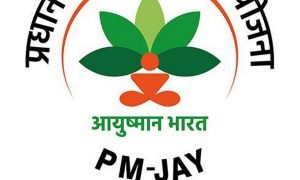Sheikh Hasina has accused Bangladesh interim leader Muhammad Yunus of leading an undemocratic, fascist regime that suppresses the spirit of the Liberation War and neglects public welfare.
Read More: Elon Musk Becomes First Person To Reach $400 Billion Net Worth Milestone
In a fresh attack on Bangladesh’s interim leader Muhammad Yunus, ousted Prime Minister Sheikh Hasina on Sunday alleged he was a “fascist.” She claimed that the main aim of the dispensation he led was to suppress the spirit of the Liberation War and the pro-liberation forces. Hasina also accused Yunus of leading an “undemocratic group” that has no responsibility towards the people.
Hasina’s remark came on the evening of ‘Bijoy Dibos‘ or Victory Day, which Bangladesh celebrates on December 16.
In a statement in Bengali, Hasina, who fled to India after resigning as the Prime Minister in August in the face of massive anti-government protests, said that “anti-national groups” had unconstitutionally captured power.
Read More: Switzerland Suspends Most Favoured Nation Status To India Over Nestle Ruling
“This undemocratic group led by the fascist Yunus has no responsibility towards the people,” she said.
“They are taking power and obstructing all public welfare work,” she added.
Hasina slammed the Yunus dispensation and said the people of Bangladesh are burdened by the rise in prices.
“As this government is not democratically elected, they have no accountability to the people. Their main aim is to suppress the spirit of the Liberation War and the pro-liberation forces and suppress their voice,” Hasina said.
“On the contrary, they are secretly supporting the anti-Independence radical communal forces. The lack of sensitivity of the leaders of this government, including the fascist Yunus, towards the Liberation War and its history is proven in every step they take,” she said.
BANGLADESH’s BIJOY DIBOS
On December 16, 1971, then chief of Pakistani forces, General Amir Abdullah Khan Niazi, along with 93,000 troops, surrendered to the joint forces of the Indian Army and ‘Mukti Bahini’ after the 13-day war following which East Pakistan became Bangladesh.
Relations between India and Bangladesh came under strain after the formation of an interim government which Yunus now heads. The Awami League leader has been staying in India since Hasina left Bangladesh.
There has been a spate of attacks on minorities, including the Hindu community, in Bangladesh in the last few months, on which India has expressed concerns.
Last week, foreign Secretary Vikram Misri visited Dhaka and conveyed to the country India’s concerns, especially those related to the safety and welfare of minorities.
“There is no reason why this mutually beneficial cooperation should not continue to deliver in the interest of both our peoples. And, to that end, therefore, I have underlined today India’s desire to work closely with the Interim government of Bangladesh,” Misri had told reporters in Dhaka.
“At the same time, we also had the opportunity to discuss certain recent developments and issues, and I conveyed our concerns, including those related to the safety and welfare of minorities,” he said.





































